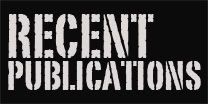
The menu at a Café Venezuela in Caracas. Each entry shows two prices, the “market price” and the cafe’s lower “fair price.”
By SIMON ROMERO
Published: September 25, 2010
CARACAS, Venezuela — On the eve of parliamentary elections on Sunday, a litmus test of President Hugo Chávez’s 12-year rule, one way to gauge the sentiment within his political movement is to wander through the streets of this city’s old center before slipping into a new state-owned cafe.
Along the way, peddlers sell copies of Correo del Orinoco, the new state newspaper. Soldiers in red berets patrol streets once overrun by informal vendors. Murals defiantly declare Caracas an “insurgent city.”
Tucked into a corner on Plaza Bolívar is Café Venezuela, part of a chain of open-air restaurants established by the government this year. The cafe serves Venezuela-grown coffee and Venezuelan snacks like cassava bread at so-called solidarity prices, half or less than what customers would pay elsewhere.
Ideology is also on the menu. The cafes were created by Comerso, a state holding company for socialist enterprises, which also manages stores that sell everything from subsidized arepas, the crispy corn cakes that are the staple of the Venezuelan diet, to inexpensive Chinese cars. The branch in Plaza Bolívar replaced a clothing store that once occupied the same spot and was expropriated live on television by Mr. Chávez.
The planners behind the cafes have multiple objectives: to provide food and conviviality at democratic prices, to serve as commercial linchpins to renew some of the city’s most run-down districts and, not incidentally, to remind satisfied patrons of the government’s populist program in an election year.
Judging by the long lines that snake from the counter onto the sidewalk on most days, they are a hit.
CONTINUE READING














